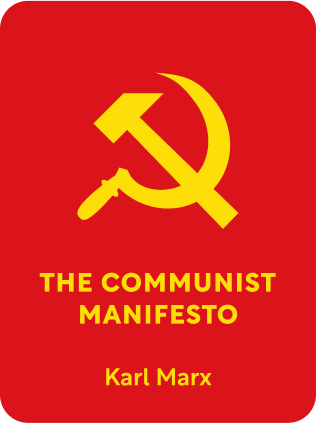

This article is an excerpt from the Shortform summary of "The Communist Manifesto" by Karl Marx. Shortform has the world's best summaries of books you should be reading.
Like this article? Sign up for a free trial here .
What is the main criticism of Communism? How are these criticisms addressed in The Communist Manifesto?
In The Communist Manifesto, the authors directly address criticism of Communism, including issues raised about religion, education, and more.
Read more about criticism of Communism and the authors’ responses to each.
Criticism of Communism
The critics of Communism, such as the Bourgeoisie, don’t have a lot of ground to stand on. Communists can address all of their criticisms, particularly the ones about abolishment. Many of the things communists want to “abolish” have already been abolished—by the Bourgeoisie—for the majority of the population. For example, the only people who have private property are the 10% of the population that makes up the Bourgeoisie. Yet, they offer a critique of Communism.
Here is some of the main points of criticism of Communism and how Communists respond:
- Communism encourages universal laziness. If abolishing private property led to universal laziness, everyone would already be lazy, because wage-earners make up most of the population and don’t have any private property.
- Communism destroys culture. The Bourgeoisie have already destroyed the culture of the working class by viewing people as commodities.
- Communism attacks freedom. The Communists oppose free trade because it leads to the exploitation of workers. They don’t oppose freedom in general.
- Communism destroys family structures. Again, the Bourgeoisie has already destroyed the family structure. Proletariat children are exploited and forced to work.
- Communism erases national borders. The Proletariat doesn’t have a country anymore—they’re not people, they’re commodities—so it’s impossible to abolish something that doesn’t exist. The Proletariat is international and the main differences between people are class distinctions. Conflicts between countries will die out as conflicts between classes die out.
- Communism upheaves the educational system. The Communists didn’t invent schools or the idea that society should have a hand in education. The Communists simply want school to be available to everyone, not just the Bourgeoisie.
- Communism makes women collective property. This criticism is rooted in misdefinition. The Communists do want all property and tools to be common, but unlike Bourgeoisie men, Communists don’t consider women to be tools or property. In fact, the Bourgeoisie have done more to create a “community of women” than the Communists ever will—Bourgeoisie men regularly visit prostitutes and sleep with each other’s wives.
- Communism destroys religion. Religion’s ideas and values normally change and evolve over time. Communism isn’t changing anything that isn’t already editable.
This critique of Communism can help you frame arguments and better understand the philosophies.

———End of Preview———
Like what you just read? Read the rest of the world's best summary of Karl Marx's "The Communist Manifesto" at Shortform .
Here's what you'll find in our full The Communist Manifesto summary :
- How the oppressors and the oppressed have been in conflict for all of human history
- How the communists planned to overthrow the ruling class and put in place a fairer system for all
- Five key criticisms of Communism, and how Communists respond






